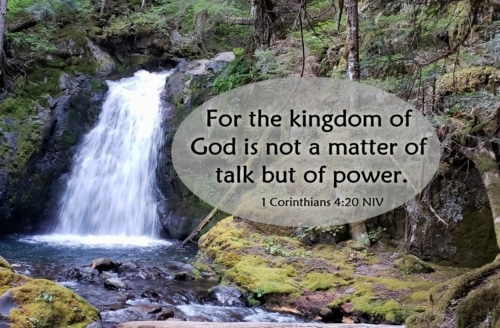For the kingdom of God is not a matter of talk but of power.
1 Corinthians 4:20 NIV
Much of the Corinthian letters are devoted to dealing with leadership issues. Paul founded this church during his second missionary journey. But not long after he had left Corinth, the church had fractured with several competing leaders, some of whom were opposed to Paul’s authority within the church. And these men seemed primarily interested in developing their own following.
Paul told this church that he hoped to visit them soon. And when he did, he would see what kind of power these men had. They talked a good talk. But the kingdom of God is about more than talk. It is about power. Paul’s challenge to these men sounds similar to Elijah’s challenge to the prophets of Baal in 1 Kings 18:16-40. A challenge that ended with fire falling from heaven. I do not believe Paul was going to be calling down fire from heaven. But he did intend to test the power his adversaries had.
What Power?
What is this power that characterized the kingdom of God? So far in this letter, Paul had identified the message of the cross as the power of God (1 Cor. 1:18); that Christ is the power of God (1 Cor 1:24); and that his message was a demonstration of the Spirit’s power (1 Cor. 2:4). And in Ephesians 1:19-21, Paul prayed that we might know the incomparably great power of God for us who believe.
This power of the kingdom is the power of God to transform lives. To bring us from the kingdom of darkness and into the kingdom of Christ. The power that enables us to accomplish the mission Christ left for his church – evangelizing the world and making disciples. The kingdom’s power is not reflected in our material wealth, power, or prestige. But it is reflected in changed lives and the difference we make in the world around us. It is the Holy Spirit at work in the lives of individual believers and local churches.

